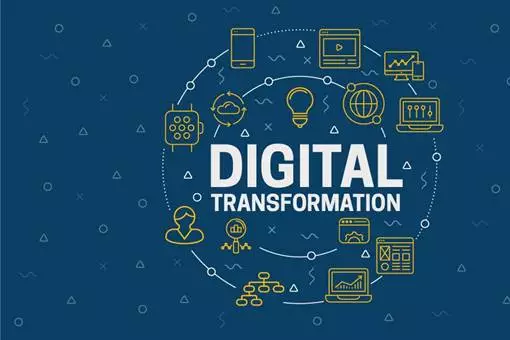Big data: changing the way businesses are run
- 17th April 2015
- Innovation & Technology

We explore the values of big data and how they are shaping the manner in which companies work.
Businesses have been harnessing the power of data for decades, deriving value from sets of numbers, statistics, and information. However, the demand for more in-depth and better real-time data has seen the rise of big data and the various ways in which companies can utilise it.
An EY report from April 2014 suggested that big data will fundamentally change the way businesses compete and operate. This would be due to the creation of an ever widening performance gap that grows as more relevant data is generated and harnessed.
But what is big data, how can it be used and why will it shape businesses in the future?
Big data defined
While there are a number of definitions for big data, the most common usage refers to huge sets of data that are being created by people, tools and machines. Ideally, these data sets would include absolutely everything that can possibly be recorded: interactions, speech, travelling, things viewed - there really aren’t any limitations on what can be incorporated.
Technology is the current limiting factor for what data can be gathered. For example, there simply isn’t yet a way to record what passers-by are looking at in shop windows. But big data also refers to the analytical process that reveals patterns, trends and associations, which is where businesses can find value.
One basic way businesses use these streams of information is to identify customer purchasing habits to monitor inventory statuses. However, these internal data sets are just the beginning of what can be accomplished with big data.
Potential of big data
You need only look to newer platforms to see the effectiveness of collecting and analysing data to gain value. Google and Facebook have both succeeded in this venture, monitoring the habits of their users and applying this to marketing campaigns.
Nowadays, technology is penetrating almost every facet of our daily lives. Smartphones are becoming commonplace and all devices are become increasingly connected to one another, something that lies at the heart of the Internet of Things. The potential data that can be reaped from this appears nigh on limitless and organisations must understand how to use it effectively.
Once data is being used sensibly and appropriately, evidence shows that firms can then make faster decisions, giving them the edge over competitors, according to research conducted by Professor Andy Neely, director of Cambridge Service Alliance.
Writing in an article in the Telegraph, he noted that the correct application of big data can “confer competitive advantage in terms of better customer service, better firm efficiency and increased productivity by up to six per cent.”
Firms applying big data
The world is beginning to wake up to the fact that big data equals big money; there are a number of multimillion dollar companies whose success is based on the application of big data.
Ayasdi, the data analysis spinoff from Stanford University, is one such company who made recent headlines after snagging a further $55 million in a Series C round of funding. The firm was started in 2008 by three mathematicians and uses a method of data analysis that visualises sets of data as shapes, which can then be used to identify patterns.
With reported growth of 400 per cent in bookings for the last fiscal year, and an expected worth of $1 billion or more by next year, there’s no doubt that Ayasdi is making big bucks from big data.
Another recent big data development is the announcement that IBM is teaming up with Apple in a bid to provide healthcare solutions through the use of the supercomputer Watson and Apple’s HealthKit and ResearchKit frameworks.
Watson’s analytical powers will be put to use on terabytes of data collected every day from personal fitness devices and mobiles, which will be mined on an opt-in basis. It is hoped that this partnership will allow Watson and ResearchKit to provide accelerated solutions to health problems by spotting patterns in the data.
Global data
There is a host of applications for big data and firms will continue to innovate in this field. Their ability to compete in this ever-expanding sector will depend on how well businesses collect, manage and leverage big data.
Data sets from the Internet of Things, social media, government data, businesses and the public are certainly valuable individually, but if analysed collectively greater and more interesting insights could be garnered. Harnessing the growing global pool of information assets they will likely take firms one step ahead of their competitors.
However, it’s critical that ethics such as privacy and consumer consent is maintained throughout the whole process, else tarnish the reputation that big data has in the public eye.
Other News
How Leadership Shapes Digital Transformation
Being digitally driven is a necessity right now for every business, but just acquiring new technology isn’t enough as implementation…
Top 3 Big Data Trends in 2020
Data and technology have made their way into our lives and have forever changed the way we use the internet.…
Technology failures changing consumer attitudes in banking, study shows
A study from data analytics firm Consumer Intelligence has highlighted the impact of technology failures in banking, with more than…



